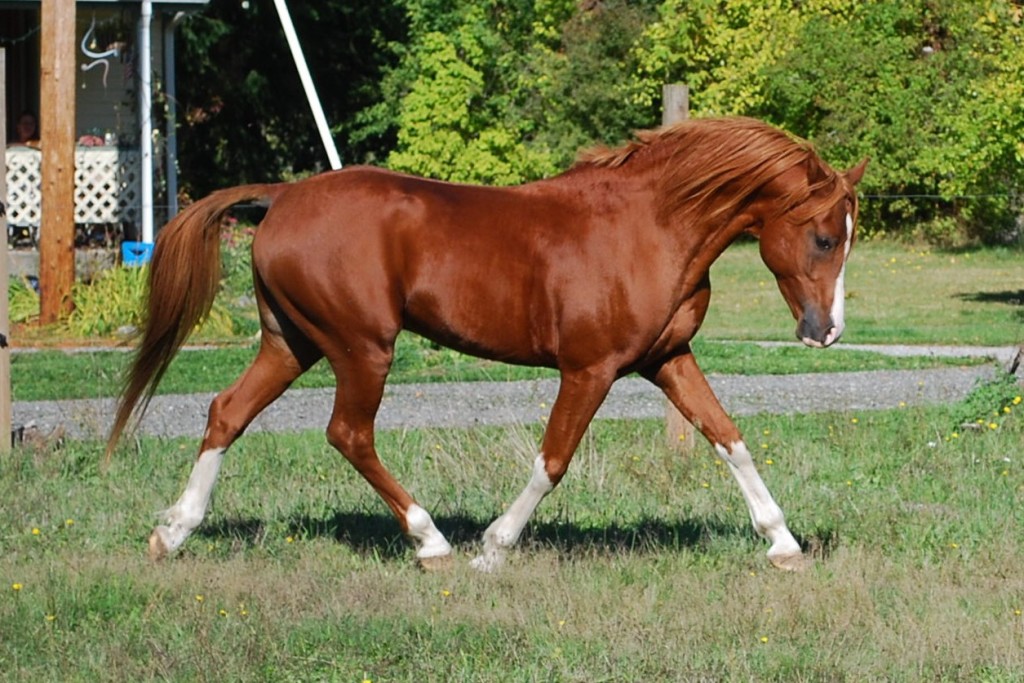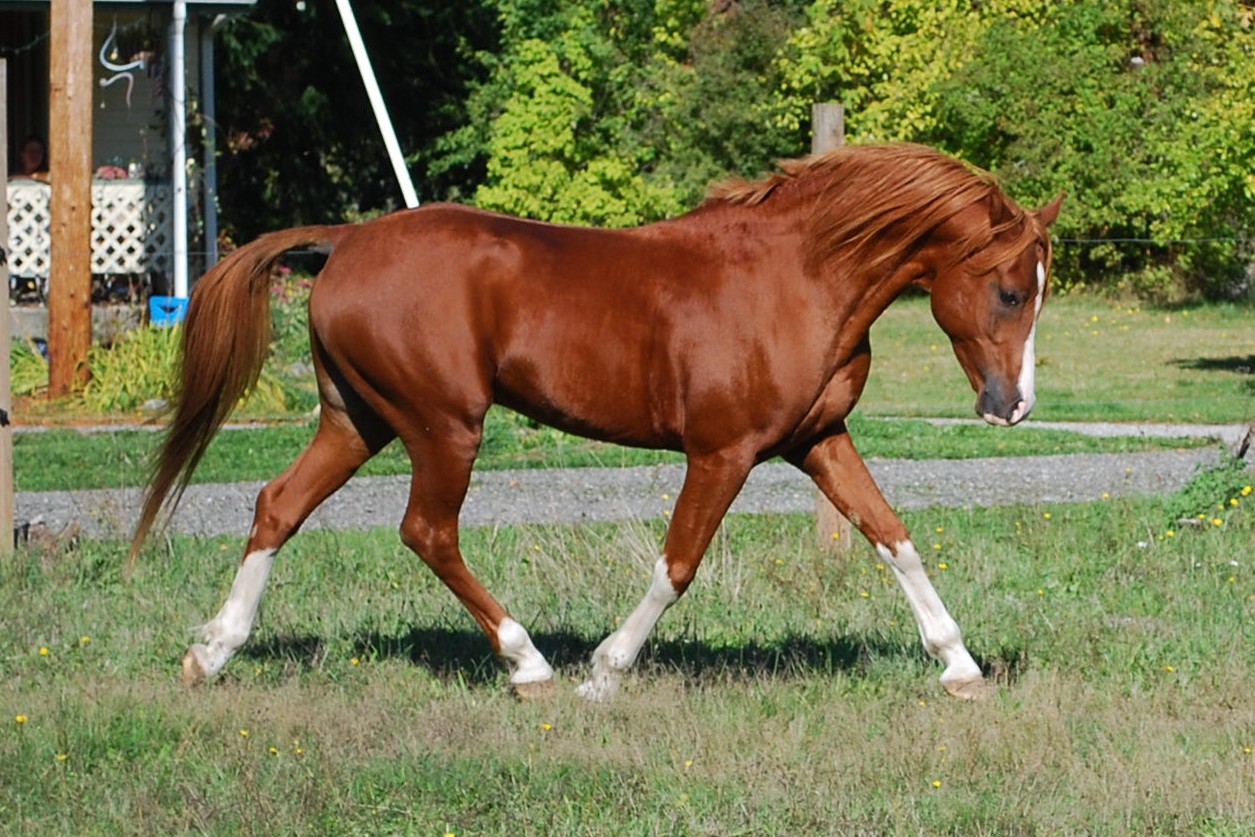The Health Benefits of Going Barefoot
by Carole Herder

You’ve had a magnificent summer with your horse— cantering through emerald green fields, lazy picnic lunches and refreshing dips in your favorite local swimming spots. It’s been a fantastic time but now the seasons have changed. Maybe you’ve considered pulling the metal shoes off your horse for the winter. Perhaps you’ve heard about the benefits of re-establishing proper “hoof mechanism.” You like the idea of allowing blood to flow freely into the live tissue of the brilliant structures that support your horse.
“No hoof, no horse” is a common saying among horsemen. There are many debilitating conditions of the hoof including navicular disease, laminitis, ring bone, side bone, splints, arthritis and chronic thrush. These can all be deterred by a practice that is simple, beneficial and cost effective. Have I got your attention? Simply put, now is the time to pull off those metal shoes. Without a rigid metal shoe, blood is free to circulate and it provides nourishment and oxygen to a horse’s hooves, allowing their weight and the shock of impact to be properly absorbed.
When the frog makes contact with the ground it pumps fresh blood through all the coriums of the hoof—allowing shock to be properly absorbed by the hoof, rather than referred back up the structure by the impact of a metal shoe. Various studies have concluded that horses receive an 800 Hz vibration when metal impacts a hard surface at the trot. Now is a good time to relieve those debilitating effects and encourage the hoof to expand and contract as it should. Cavallo Hoof Boots can help make this happen. What we call hoof mechanism is the pumping function that restores hoof health to your horse; absorbing shock rather than delivering it. The solution is to simply pull off metal shoes and use a boot such as Cavallo to keep your horse comfortably free and natural.
The cost of hoof care and maintenance can be substantial so it’s helpful to compare trimming to shoeing. The costs of hoof boots, even with trimming costs included, will amount to less than regular shoeing, but the real savings is in veterinary fees. Your horse’s overall strength, respiratory, circulatory and immune system will benefit. A poorly functioning hoof can bring down the entire system. Alternatively, a properly functioning, healthy hoof affects the entire horse in a positive way.
Most of us don’t ride as frequently during the winter months, so this time can be used to rehabilitate from the negative effects of nailing shoes onto your horse’s hooves. Hoof boots can be the most useful, practical and no-nonsense tool to assist in returning those feet to their healthiest, natural state. Cavallo Hoof Boots work great for cold weather riding. The boot soles naturally deter snow and ice from balling up inside the sole concavity and adding studs can help with traction on icy surfaces. Keep your horse moving all winter with the assistance of properly fitted, quality hoof boots.
For horses dealing with bacterial infections or injuries Cavallo Boots can be used to aid in protection and speed up healing times. If you need to apply a poultice, secure a bandage, or remove thrushy bacterial infections, the boots can be left on for turnout; simply tape up the aeration slots to keep the hoof dry in wet weather. This will also help to combat the effects of ice shards or any other aggressive terrain. There are multiple ways to use and benefit from using hoof boots. For additional information, assistance or support please contact us at info@cavallo-inc.com
Published in December 2015 Issue

Carole Herder has a genuine passion for educating horse owners worldwide, especially on all matters related to natural horse care. Because of her strong belief that allowing horses to go barefoot helps alleviate hoof problems, Carole designed and developed Cavallo Simple, Sport and Trek Boots. In 1993, she also designed and developed Total Comfort System Saddle Pads to address another troublesome area for riding horses– sore backs. Providing comfort for horses is Carole’s passion. In 2010, she won the Royal Bank of Canada western division Trail Blazer Woman Entrepreneur of the year award. Carole is an author of several publications and is currently finalizing her first book. She attends numerous horse events worldwide. www.cavallo-inc.com

